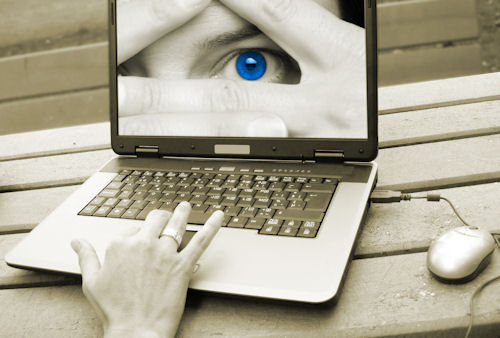Do you get a headache when using a computer screen for a few hours? It could be eye strain.
Research shows most people spend up to 7 hours a day in front of a digital device.
In recent years, there has been a significant rise in the amount of time people spend staring at a digital device. This rapid increase in screen time— which researchers estimate to be up to seven hours per day— is a primary cause of eye strain.
What is eye strain?
Eye strain, often known as eye fatigue, is a set of symptoms that develop after looking at near vision tasks.
Eye strain can be caused by reading, using a computer, tablet or smartphone, playing video games or even hobbies and crafts.
Eye strain can also be brought on by performing certain activities in low light, or in a room with dim lighting.
Symptoms of eye strain include:
- Headaches or migraines
- Blurred vision
- Dry eyes
- Red, irritated eyes
- Increased sensitivity to light.
Screen time
We all know that too much screen time is bad for us, yet it’s sometimes impossible to avoid.
A recent poll of 2,000 office workers discovered that people spend roughly 6.5 hours each day in front of a computer. That’s over 1,700 hours each year and doesn’t include time spent scrolling on your phone or playing video games!
It’s no wonder so many people experience eye strain.
While eye strain is unpleasant for your eyes, the good news is that it has no long-term side effects and is simple to treat.
Here are five ways to relieve eye strain and keep your eyes comfortable, even after a long day in front of a screen.
SEE RELATED: Digital Eye Strain: Myths and Facts
Contact an eye doctor near you if you are experiencing symptoms of eye strain or fatigue.
1. Keep a distance
While you may think that sitting closer will help you see better, it’s actually the opposite. When you sit too close to your screen, the muscles in your eyes are forced to work harder to focus on the image in front of you.
Keeping a safe distance can help keep your eye muscles relaxed and prevent eye strain.
It’s recommended to sit 18-25 inches away from your computer screen, about an arm’s length away, and have your screen positioned in a way that your eyes look slightly downward on the screen.
2. Follow the 20-20-20 rule
Extended periods of near vision activities, such as using a computer or other digital device requires constant focusing. The 20-20-20 rule gives your eyes a chance to relax their focusing muscles every couple of minutes.
Every 20 minutes, look away from your screen and focus on something 20 feet away for at least 20 seconds.
3. Reduce the glare on your screen
The glare on your computer screen isn’t just irritating, it can also irritate your eyes and cause eye strain. Consider using a matte screen filter to eliminate glare or opt for anti-reflective coatings on your glasses.
Another good tip to prevent glare is to avoid placing your computer screen where you can see reflections off windows or lights.
4. Use artificial tears
To keep your eyes moist and ease the discomfort of dry eye caused by eye strain, use artificial tears.
While there are many over-the-counter choices, keep in mind that some of them contain preservatives, which can sometimes cause further irritation.
If eye drops don’t alleviate your symptoms, it may be time to visit your eye doctor.
5. Visit your eye doctor
Your eye doctor can provide a range of successful options to relieve both dry eyes and eye strain. From medicated eye drops to specialized anti-reflective coatings or blue light filters on your lenses, your eye doctor will work with you to determine the most effective way to alleviate your eye strain.
LEARN MORE: Guide to Vision Therapy for Adults
With a rapid increase in screen time over the years, eye doctors are seeing more and more patients with complaints of eye strain.
If you are experiencing eye strain or headaches, schedule an appointment with an eye doctor near you.

